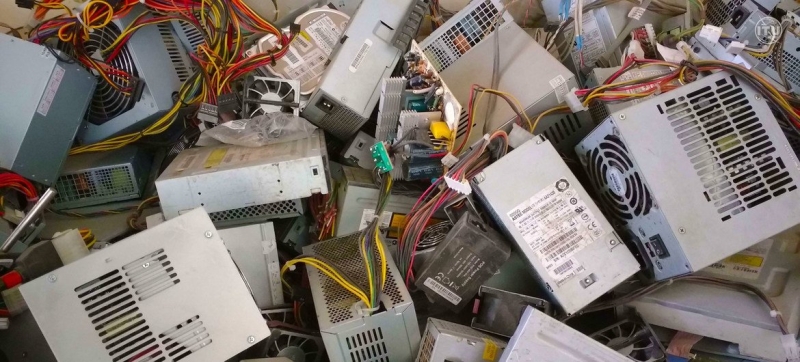
With the rise of online commerce, waste has also increased dramatically. Digital waste volumes reach 10.5 million tons Economic Development
Producing a two-kilogram computer requires 800 kilograms of raw materials, and mining Bitcoin last year required 121 terawatts of energy – more than the amount consumed by a small country. This is according to the new Digital Economy Report released today by the United Nations Office for Trade and Development (UNCTAD).
The report’s authors stress that while digitalization is fueling global economic growth and opening up unique opportunities for developing countries, its environmental impacts are becoming increasingly serious.
“For example, the energy consumption of Bitcoin mining increased 34-fold between 2015 and 2020, reaching about 121 terawatt hours… The energy use of Bitcoin mining is higher than what Belgium or Finland consumes in a year,” UNCTAD Secretary-General Rebekah Greenspan told reporters in Geneva.
Minerals
Developing countries are experiencing the negative consequences of digitalization more than others, both economically and environmentally. In doing so, they have the potential to leverage the global digital shift to promote development.
Read also:
Five facts about minerals used in clean energy and the “dirty” process of their extraction
V developing countries have concentrated reserves of raw materials necessary for high technologies. Demand for minerals such as graphite, lithium and cobalt could grow by 500 percent by 2050, according to the World Bank. This opens up development opportunities for resource-rich countries if they can effectively use revenues and diversify their economies.
Environmental Impact
The information and communications technology (ICT) sector’s significant environmental impact spans the entire production cycle, from raw material extraction and processing to use and disposal. All these processes require huge amounts of minerals, energy and water, which contributes to greenhouse gas emissions and environmental pollution.

Electronic waste poses the greatest danger to those who recycle it.
“Google reported total water consumption at its data centers and offices in 2022 was 5.6 billion gallons (about 21.2 million cubic meters). During the same year, Microsoft reported water consumption of 6.4 million cubic meters,” Greenspan said, adding that water consumption by such facilities has recently caused tensions in local communities in several countries.
According to UNCTAD, in 2020, emissions from the ICT sector were estimated to range from 0.69 to 1.6 gigatons, representing 1.5-3.2 percent of global greenhouse emissions gases This figure is expected to grow along with the digital economy.
Artificial Intelligence and Cryptocurrencies
The authors of the report are particularly concerned about the development of artificial intelligence and cryptocurrency mining. For example, global energy consumption for Bitcoin mining increased approximately 34-fold between 2015 and 2023, reaching approximately 121 terawatt-hours. Between 2018 and 2022, electricity use by 13 major data center operators more than doubled.
With the rise of online trading, volumes have also increased sharply digital waste. They increased by 30 percent from 2010 to 2022, reaching 10.5 million tons worldwide. The report notes that developed countries produce 3.25 kilograms of digital waste per person, compared with less than one kilogram in developing countries and just 0.21 kilograms in least developed countries, another indicator of the uneven distribution of benefits.
Sustainable digitalization
UNCTAD calls on the international community to promote the development of a circular digital economy, minimize environmental impacts and make efforts to overcome digital divide.
The report highlights the need to integrate digital and environmental policies and measures to ensure a fair and responsible digital economy. This approach aims to enable countries to take advantage of the opportunities offered by the digital economy while protecting the interests and well-being of current and future generations.
